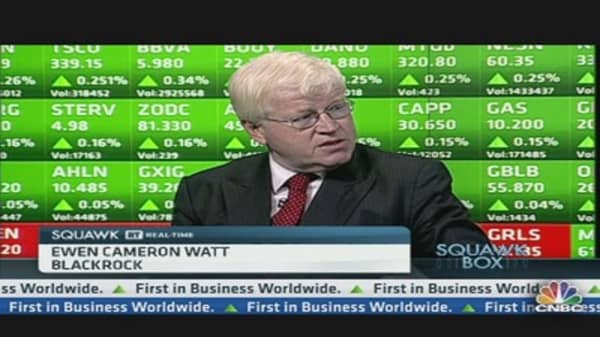Declining volumes on global stock markets appear to show that real money trading activity is at decade lows, according to a new report from Credit Suisse, and investors believe volumes will stay low for two more years unless global resolutions to the risks of the economic crisis are found.
Credit Suisse’s report on trading activity shows that over the past four years, volumes in equity marketshave been steadily falling and are now at half the level seen in the middle of the credit crisis— and traders fear they could get worse.
After surveying trade desks in the U.S., Europe and Asia, the report found that 76 percent of institutions are trading “a lot less”, with 35 and 40 percent of desks responding that they were trading “well below average - down 20 percent” and “below average - down 10 percent” respectively.
And there is no sign that there will be any change in a hurry, with 83 percent of respondents telling Credit Suisse that it would take 2-5 years (or possibly more) for volumes to recover. As long as global economic woes continue unabated and unresolved, or indeed approach in the months ahead, trading activity would stay subdued and risk averse, according to traders.
“Almost half of the responses said macro-risk needs to be resolved before trading activity is up…This is consistent with the popular view that macro risks are a key factor in decreasing investor risk-appetite — including European defaults, recessions, the U.S. fiscal cliff and its own deficit,” the report said, adding, “It’s unlikely all will be resolved in less than a year.”
This view was also borne by Chris Watling, CEO of Longview Economics, who told CNBC’s “Squawk Box Europe” on Friday that market volumes in equity markets will “grind slowly higher”, dependant on policy decisions from the European Central Bank for the euro zone that could in turn, he said, stop deleveraging in equity markets.
“[Equity markets] are grinding slowly higher…and the important thing is policy, policy, policy," Watling said.
However, traders in the Credit Suisse survey are worried not only over macro-economic risks, falling liquidity and increased trading costs.
The introduction of a High Frequency Trading (HFT) tax and regulation in order to countenance market manipulation and risk, could further damage liquidity and restrict trading, according to the majority of traders surveyed.
Over 70 percent of traders said that pending regulations and HFT taxes (55 percent) would hurt liquidity.
The trading strategy team which authored the report states that rather than hope for change, “traders need to adapt or perish”. Indeed, many are changing: “The majority of traders in our survey prefer to spend more time looking for natural blocks now — to counteract the costs of reduced liquidity.”
Traders needed to prepare for change as more and more investors turn to cheaper, electronic execution, the report stated. More trading institutions were looking for “quality over quantity…trimming broker lists…rather than reducing all commission spend equally” and traders needed to “adapt or perish” in order to survive.
“Brokers are stuck in a deflationary environment and will need to consolidate, become more efficient, or find a product that is differentiated, and therefore holds its value.”
Evolving as a trader meant that the market could then “evolve based on product rather than scale” the report said. Those that don’t adapt, “may be hurting their funds for an extended period,” the report states.





